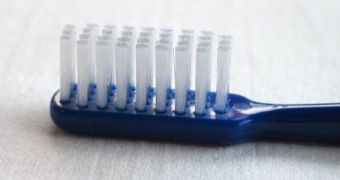University of Pittsburgh researchers found in a new study on animals that the negative effects of periodontal disease – including swollen and painful gums and severe bone destruction – can be mitigated by facilitating the arrival of the right kind of immune cells into the inflamed tissue.
The work, detailed in the early online edition of the esteemed journal Proceedings of the National Academy of Sciences (PNAS), suggests that the immune system is capable of dealing with this disease on its own, without external interference, provided that the correct immune cells respond to the initial signals sent in the body by the affected areas.
With more than 78 million people suffering from this condition in the United States, the results of this investigation are far-reaching.
The group determined that facilitating the arrival of regulatory T-cells in inflamed gum tissues is correlated with a significant reduction in symptoms. These cells are responsible for telling other cells in the immune system when to stop attacking a threat.
In periodontal disease, the immune system attacks the gums because it fails to properly assess the amount of bacteria that should be present in the mouth. Scientists found that, when this happens, the amount of regulatory T-cells in the tissue is well below average, EurekAlert reports.

 14 DAY TRIAL //
14 DAY TRIAL //